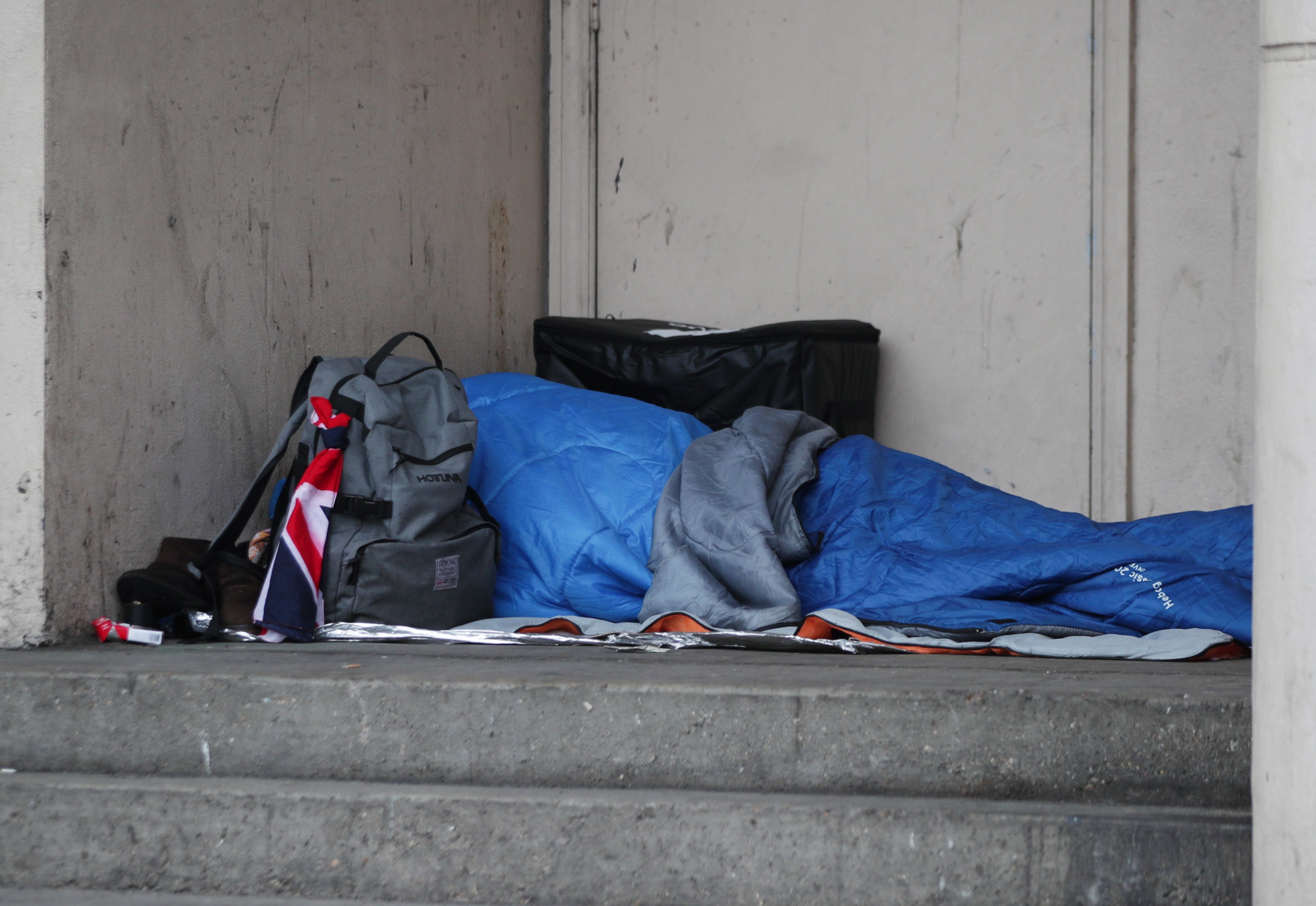Rishi Sunak facing Tory revolt over plan to criminalise rough sleeping
The prime minister risks a backbench rebellion when MPs vote on plans to give police the power to fine or move ‘nuisance’ rough sleepers
Rishi Sunak is facing a Tory revolt over plans to criminalise homelessness in a key crime bill this year.
The prime minister risks a backbench rebellion when MPs vote on the Criminal Justice Bill, which would give police the power to fine or move “nuisance” rough sleepers.
Dozens of MPs from the left and right of the Conservative Party are said to have warned Tory whips they will vote against measures in the bill.

Senior government sources told The Times they had “paused” the legislation while ministers negotiated with more than 40 expected rebels.
“The government is panicking about the scale of the rebellion because they know if it gets pushed to a vote they will lose,” one said.
The rebel added: “But we’re not backing down or giving way. The ball is in the government’s court. They need to listen or it will be desperate for them.”
A minister on Monday refused to say whether he would support the plans to criminalise rough sleeping.
Asked by Times Radio whether he would back the bill as it stands, business minister Kevin Hollinrake said: “Those things are not within my auspices. I will be interested to see the legislation as it goes through and what the prime minister has planned.”
Asked if it was right to arrest someone for so-called nuisance rough sleeping, Mr Hollinrake said: “What is the most important thing is we provide the resources to get people off the streets and there should be those places where people can go to.
“I don’t think that should be... that shouldn’t be optional for people, if there are places that people can go to off the streets then those people should be off the streets, they shouldn’t be lying on the streets. It is not fair to other people in our town and city centres.”

The plans as they stand would grant police and local authority workers new powers to order beggars to move on while encouraging them to make use of accommodation services and mental health support.
Another new offence will be created for criminal gangs organising begging networks, and a government release said people causing “nuisance on the street” would be moved on, pointing in particular at those “obstructing shop doorways and begging by cash points”.
Homelessness charities have warned the government measures intended to replace the 200-year-old Vagrancy Act which criminalised all rough sleeping will instead result in the “further criminalisation” of homeless people.
Polly Neate, chief executive of the charity Shelter, said: “Parliament must not enact this legislation. Instead of punishing people for being homeless, politicians should be trying to prevent them from ending up on the streets.
“Everyone at risk of sleeping rough should have a right to suitable emergency accommodation, and to end homelessness for good it must invest in genuinely affordable social homes – we need 90,000 a year.”
Fiona Colley, director of social change at Homeless Link, said she was “disappointed” by the plan.
“Homelessness is not a crime,” she said. “When the government committed to repealing the Vagrancy Act it was done with an understanding that people sleeping on our streets need to be supported, not criminalised.
“Therefore, we are extremely disappointed to see that this new plan will result in further criminalisation of vulnerable people, rather than offering the constructive solutions that work in helping people off the streets for good.”
The Liberal Democrats called on the government to back down on the plans to criminalise homelessness. MP Layla Moran, who led a cross-party campaign to scrap the Vagrancy Act, said: “The heartless proposals in the Criminal Justice Bill risk bringing back the Vacancy Act by the back door.
“The government should listen to their own backbenchers and take a compassionate approach to tackling homelessness, instead of stigmatising and criminalising rough sleepers.
“Sleeping rough is not a lifestyle choice. Ministers should focus on tackling the root causes of this crisis, not scapegoating the victims of it.”
A government spokesperson said: “We are determined to end rough sleeping and prevent people from ending up on the streets in the first place. That is why last year we published our strategy to end rough sleeping for good, backed by an unprecedented £2bn commitment.
“No one should be criminalised for simply having nowhere to live, which is why we committed to repealing the outdated Vagrancy Act, which was passed in 1824.
“These provisions provide a civil route to engage with rough sleepers to help them to take up offers of support and only criminalise any non-compliance with a lawfully made direction, notice or order.”
Join our commenting forum
Join thought-provoking conversations, follow other Independent readers and see their replies
Comments
Bookmark popover
Removed from bookmarks